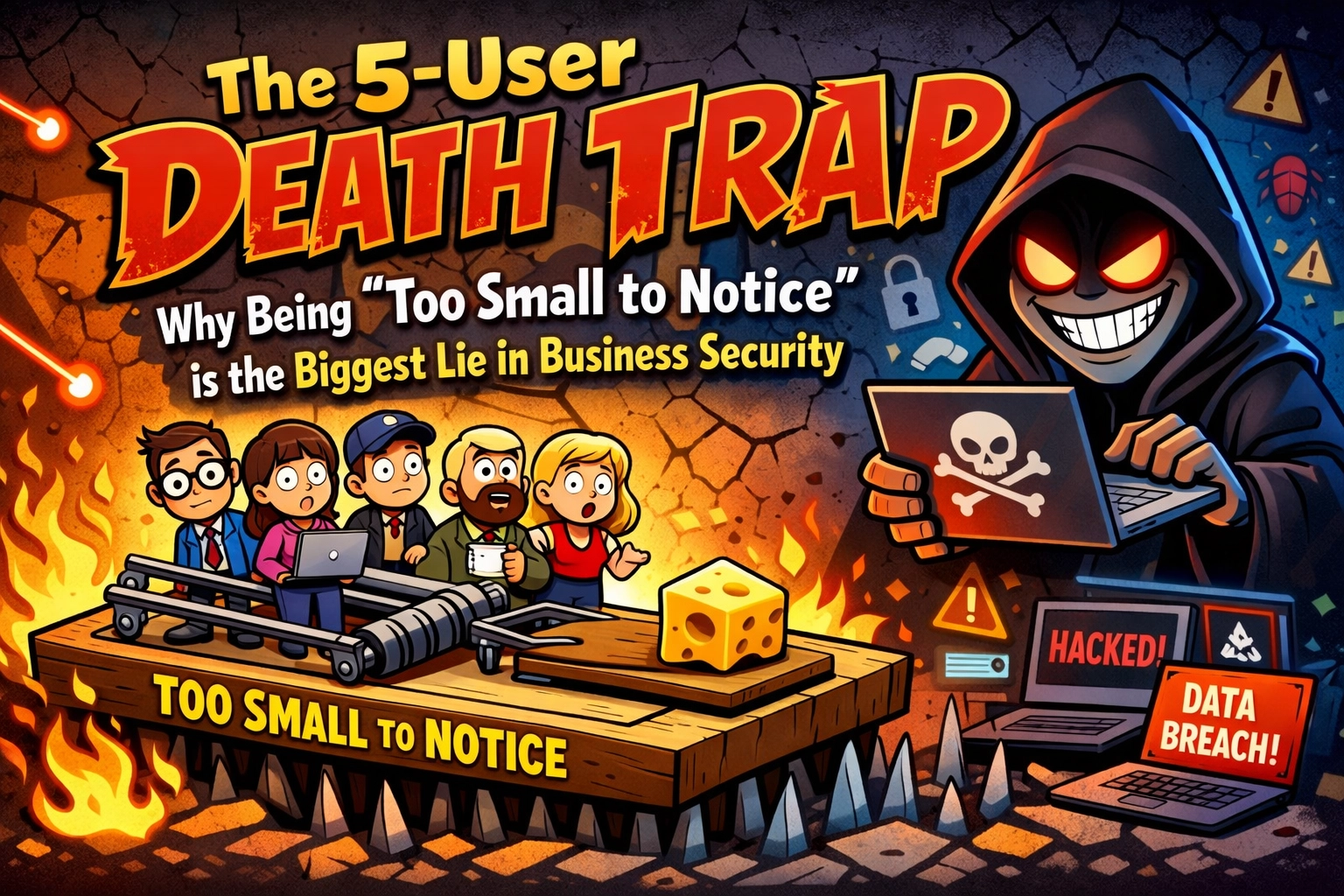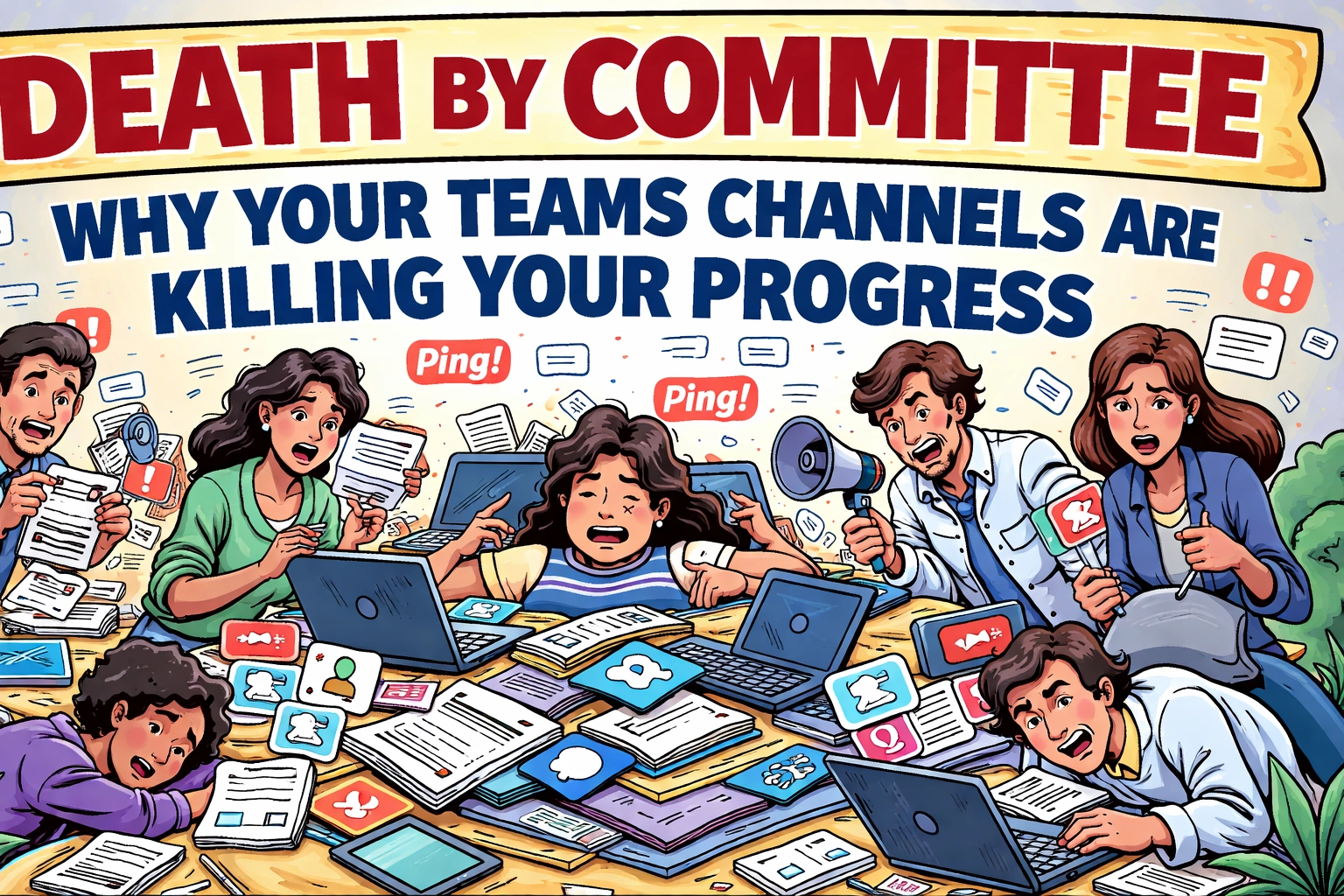Let’s get something straight right now: your crappy communication habits aren’t just annoying—they’re dangerous.
That ignored email chain? It might be the reason your company gets ransomwared next month. That cybersecurity meetup you blew off because you were “too busy”? Could’ve been where you learned about the vulnerability currently festering in your infrastructure.
Disrespect in business isn’t just bad manners—it’s practically rolling out the red carpet for hackers. And frankly, if you’re one of those “too important to respond” types, this article might sting a bit.
Good.
🧨 The Silent Killer: How Ignoring Emails Creates Security Gaps
We’ve all been there. You send a carefully crafted email to a colleague or vendor, and… nothing. Radio silence. Days pass. Your follow-up gets ghosted too.
But here’s what’s really happening behind that wall of disrespect:
-
Critical security updates go unnoticed
That IT person who’s been trying to reach you about updating your password? The vendor warning about a vulnerability in their software? Yeah, those emails matter, genius. -
Security protocols break down
When communication is treated as optional, urgent measures get delayed. That patch that needed immediate approval? It’s still waiting for your royal highness to reply. -
Hackers exploit communication gaps
Cybercriminals actively scan for orgs with poor internal communication. When no one’s talking, it’s easier to slip between the cracks.
🚪 Networking? More Like Not-working
“Sorry, I can’t make it to the security meetup. I’ve got too much on my plate.”
Translation: “I’m too shortsighted to invest in relationships that could save my business.”
When you consistently ignore networking opportunities, especially in cybersecurity, you’re actively choosing to:
-
Remain ignorant of emerging threats your peers are already discussing
-
Miss out on informal intel that doesn’t make it into reports
-
Isolate yourself from the community that could help you when you’re under attack
-
Signal to your team and the industry that collaboration and learning aren’t priorities
The irony? The same execs who “don’t have time” for a two-hour security roundtable somehow find 80+ hours to deal with the aftermath of a breach.
“I love targets who think they’re islands,” a former black hat turned consultant once told me. “They never learn from others’ mistakes—and they never see us coming.”
🧠 Be Careful Who You Dismiss
You never know who you’re brushing off.
That cybersecurity specialist you ghosted? That junior analyst you publicly shut down? That vendor you condescended to on a Zoom call? They might be the one who knows exactly how fragile your perimeter is—and now has the motive to prove it.
Let’s be clear: ethical hackers follow rules. But not everyone in the cybersecurity world plays by the same code. The industry is full of smart people with time, skills, and—when slighted—a dangerously sharp sense of justice.
Disrespect can turn curiosity into contempt. And contempt into action.
“A bored, disrespected expert with something to prove is more dangerous than any botnet.”
We’ve seen it happen:
-
Bug bounty reports ignored → researcher drops a 0-day publicly.
-
A dismissed consultant leaks a proof-of-concept to make a point.
-
A disengaged employee simply walks away, taking threat intel and accountability with them.
The cybersecurity world is small. Reputations travel fast. Burn enough bridges, and eventually, someone will feel justified lighting a match in your server room.
🧬 The Psychology of Disrespect and Security Vulnerabilities
When disrespect becomes part of company culture, it creates a cascade of security problems:
-
Employee disengagement
Employees who feel disrespected are 56% less likely to follow security protocols. Why should they care if leadership doesn’t? -
Information hoarding
In toxic environments, knowledge becomes currency. Insights don’t flow, warnings go unshared, and risk snowballs. -
Revenge factors
Disrespected employees are statistically more likely to ignore threats—or actively sabotage systems out of spite. -
Reputation damage
Companies known for poor communication gain reputations in the hacker community too—as soft targets.
“The most vulnerable organizations aren’t the ones with the weakest firewalls,” one analyst told me.
“They’re the ones with the weakest human connections.”
💀 Real-World Breaches Linked to Oversight, Neglect, or Poor Communication
These aren’t just cautionary tales—they’re high-profile case studies showing exactly how dismissing alerts, underestimating vendors, or failing to act on critical communication leads directly to disaster.
🔴 Case #1: Target Data Breach (2013) – Ignored Security Alerts
In 2013, Target Corporation suffered one of the most infamous retail breaches in history, exposing 40 million credit/debit card numbers and personal data of 70 million individuals.
Here’s the kicker: they were warned.
Target had deployed FireEye’s threat detection system, which flagged suspicious activity days before the breach escalated. Alerts were sent to the security team in Minneapolis—but no immediate action was taken. This communication failure allowed attackers to exfiltrate data over multiple weeks.
The breach, attributed in part to ignored warnings and delayed internal response, resulted in $162 million in direct costs (after insurance) and long-term reputational damage.
🟠 Case #2: Change Healthcare Breach (2024) – Underestimating Vendor Risk
In early 2024, Change Healthcare was hit with a catastrophic ransomware attack that paralyzed healthcare systems across the U.S. and exposed sensitive patient and billing data.
Though full details are still unfolding, early reports point to systemic issues in third-party risk management and vendor oversight. Experts highlighted that long-known weaknesses in the healthcare sector’s supply chain were ignored, despite repeated industry warnings.
Lack of proactive engagement, missed opportunities for collaboration, and unresolved vulnerabilities with critical partners helped create the perfect storm.
The takeaway: Vendor neglect is a breach vector, and ignoring the risk can grind entire industries to a halt.
🟡 Case #3: Anthem Inc. Breach (2015) – Delayed Response to Phishing
In 2015, Anthem Inc. experienced the largest healthcare data breach at the time, affecting 78.8 million individuals.
The breach began with a phishing email opened by a single employee. That mistake allowed attackers to install malware and move laterally for months, undetected. Despite the obvious risk, security training and communication around phishing protocols were insufficient.
The attack revealed significant delays in incident detection and response, and gaps in internal communication that allowed hackers to compromise over 50 accounts and 90 systems.
This wasn’t just a technical failure—it was a human and cultural one, where communication breakdowns and underprioritized security education opened the door.
⚠️ Pattern Recognition
Each of these incidents shows how delayed responses, ignored warnings, or disengaged communication led directly to breaches:
-
Target failed to act on a literal blinking red alert.
-
Change Healthcare paid the price for ignoring third-party risk concerns.
-
Anthem underestimated the human element, and it cost them nearly $100 million in settlements alone.
Disrespect doesn’t always wear a hoodie and hack from the shadows. Sometimes it shows up as unread alerts, missed calls, ignored partners, or skipped trainings—and it’s just as dangerous.
🔧 Building a Culture of Security Through Respect
Here’s how to start turning this around before a hacker does it for you:
-
Implement response protocols
Define response-time SLAs for both internal and external communications—especially anything labeled security-related. If it says “urgent” in the subject line, maybe don’t let it sit for three days. -
Prioritize security networking
Don’t treat meetups, webinars, or advisory boards as fluff. That’s where real threat intel flows—not just in whitepapers, but in side conversations over coffee.
And hey, if we email you to network, maybe don’t blow us off. 😏 -
Train with humanity in mind
Security awareness should go beyond click-through LMS modules. Teach people why respect, communication, and collaboration directly impact your breach surface. -
Audit your communication posture
Are emails acknowledged? Are people afraid to raise red flags? Do leaders model timely, respectful responses? These are cultural metrics with real security consequences.
🔚 Bottom Line: Respect Is a Security Feature
No, being nicer won’t stop every hacker. But being dismissive, arrogant, and unreachable? That’s like handing them your keys with a Post-it note that says, “Nobody here’s paying attention.”
Every ignored email is a missed warning. Every dismissed expert is a burned bridge. Every act of disrespect weakens your perimeter more than you realize.
Want to know how vulnerable your org’s communication culture has made you? Our assessment might sting a little—but not as much as a $3 million breach. And trust me, the hackers probing your systems? They don’t respect your schedule or your excuses.
In cybersecurity, an ounce of respect is worth a pound of recovery. Sometimes, the best security upgrade is just answering your damn emails.




